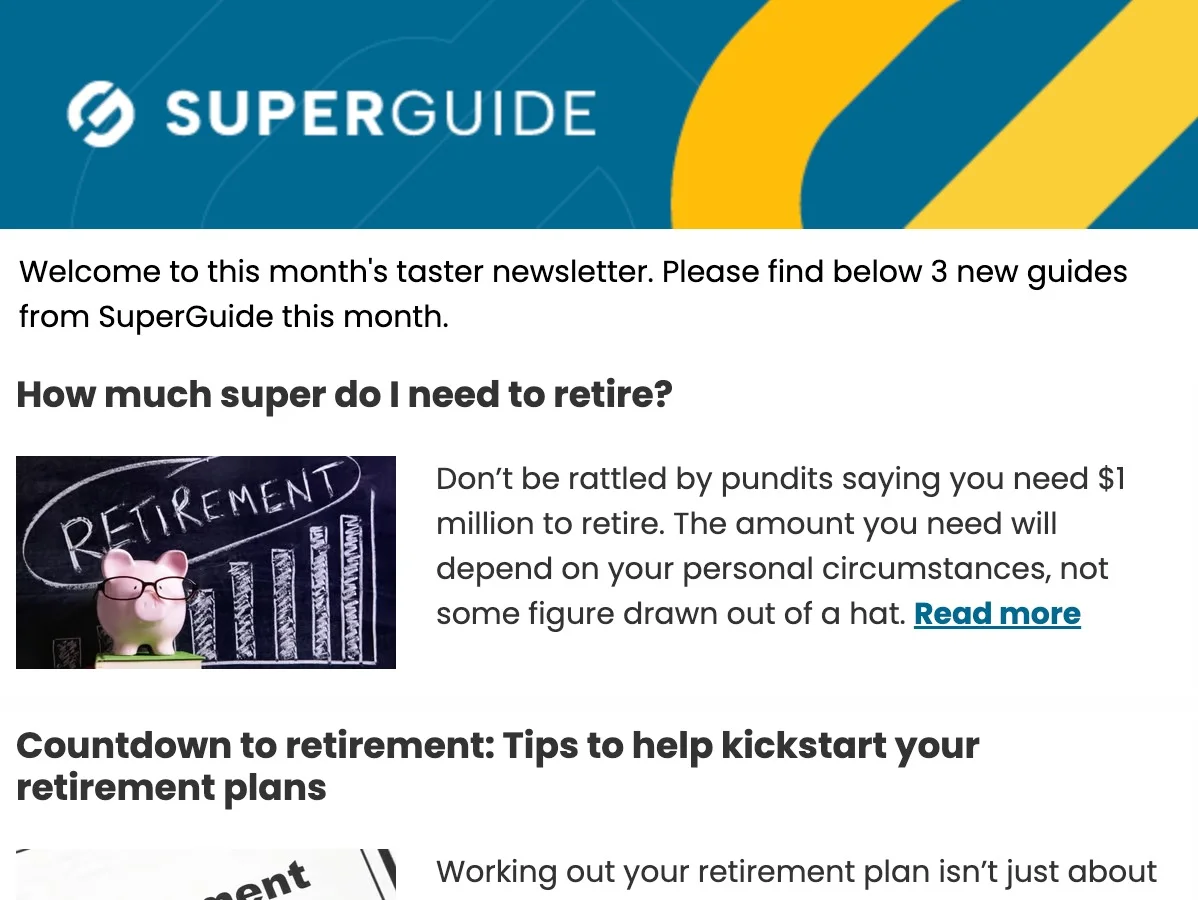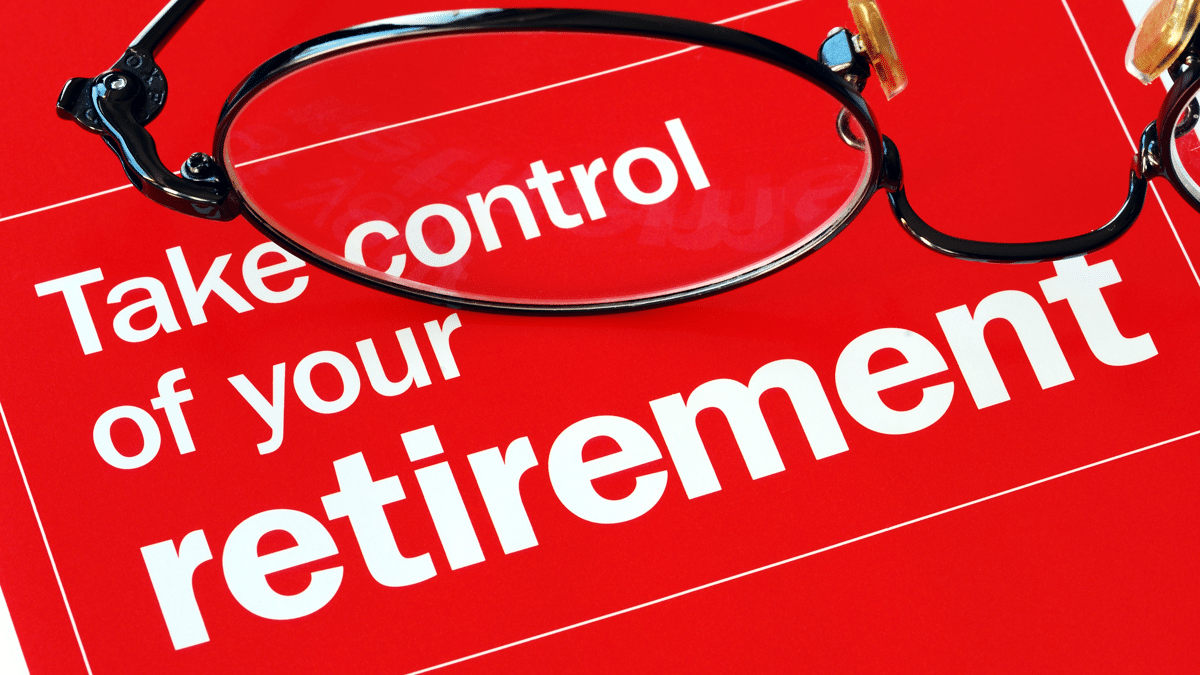In this guide
During their working life, many small business owners plough every surplus dollar into their business and then use the proceeds from its eventual sale to pay for their retirement.
This can be a sensible strategy, especially if you take advantage of the various small business capital gains tax (CGT) concessions on offer when you sell. Not only can these concessions significantly cut your CGT tax bill, but they can also allow you to contribute more money into your super account.
Some small business CGT concessions can even help eligible business owners to make a substantial contribution into their super after they sell, without having to worry about the normal super contribution limits.
What are the small business CGT concessions?
There are four small business CGT concessions on offer:
- Small business 15-year exemption (Subdivision 152-B of the Tax Act)
- Small business 50% reduction (Subdivision 152-C)
- Small business retirement exemption (Subdivision 152-D)
- Small business rollover (Subdivision 152-E)
You can use these tax concessions when you sell an active asset your business owns at a profit, provided your annual turnover is under $2 million.
Each concession is available in a different situation. You can apply as many of the CGT concessions to the capital gain from selling your assets as you are eligible for, allowing you to continue reducing your capital gain and the resulting CGT.
Of the four CGT concessions, however, only two come with the extra bonus of allowing you to make larger contributions to boost your retirement savings. These are the:
- Small business 15-year exemption
- Small business retirement exemption.
How does the 15-year CGT exemption work?
The 15-year CGT exemption is the most favourable of the four small business tax concessions and it must be applied first to any capital gain from the sale of your business assets.
Under the 15-year CGT exemption:
- The entire capital gain you have made on your business over the years is disregarded by the ATO
- You don’t need to use any capital losses you have accrued to offset the capital gain
- The entire sale proceeds up to the Lifetime CGT Cap (see section below) can be contributed into your super account and is not counted towards the non-concessional contributions cap.
This concession can be a great way to avoid paying a lot of CGT on the capital gain you’ve built up in your business over the years, while also boosting your super account as you near retirement.
Am I eligible for the small business 15-year CGT exemption?
Before getting too excited, it’s important to know there are both basic conditions and some specific conditions you need to meet before you qualify for this exemption.
2026 SMSF calendar
Our free calendar includes due dates for important documents plus suggested dates for trustee meetings and other strategic issues for your SMSF.
"*" indicates required fields
1. Basic conditions for any small business CGT exemption
You must be one of the following:
- A small business entity with an aggregated turnover of less than $2 million
- Not carrying on a business (other than as a partner), but the asset you are selling is used in a closely connected small business
- A partner in a partnership that is a small business entity, and the asset is either:
- An interest in a partnership asset
- An asset you own that is not an interest in a partnership asset, but is used in the partnership’s business
- You satisfy the maximum net asset value test.
In addition, the asset you’re selling must meet the ATO’s active asset test, which requires the asset to be used in the course of carrying on a business, or held for that purpose, or to be an intangible asset inherently connected with your business.
You will meet the active asset test if the asset you owned for more than 15 years was active for at least 7.5 years. For an active asset you owned 15 years or less, the asset must have been active for at least half the test period, which begins when you acquired it and ends either at the CGT event, or when the business ceases if this occurs in the 12 months before the CGT event.
These minimum periods don’t need to be continuous, provided the asset is active for the minimum amount of time in total.
If the asset is a share in a company or interest in a trust, it must meet additional conditions.
If your situation involves a CGT event related to a partnership and the CGT event involved ending your right or interest, it must be a membership interest in the partnership immediately before the CGT event happens. For all other cases, your right or interest must be a membership interest in the partnership immediately after the CGT event happens
Super knowledge is a super power

"*" indicates required fields
2. Specific conditions you need to meet for the 15-year CGT exemption
- You (or the significant individual if you are a company or trust) must be
- 55 years or older and the event happened in connection with retirement, or
- Permanently incapacitated (no age requirement)
- You must have continuously owned the CGT asset for the 15-year period ending just before the CGT event happened
A company or trust must have a significant individual for a total of at least 15 years of the whole period of ownership of the CGT asset.
The significant individual does not have to be the same individual for the entire period.
Other rules apply in the case of relationship breakdowns and death. For details, see the ATO website.
Contributing to your super using the 15-year exemption
If you’re eligible for the 15-year CGT exemption, you can also take advantage of the many benefits of saving for your retirement through the super system. These include a maximum tax rate of 15% on investment earnings, which compares to your marginal tax rate (plus the Medicare levy) on investment earnings held outside super. In addition, once you’re in retirement, super income streams or pensions paid from your super account are tax free from age 60.
If you use money eligible for the 15-year CGT exemption when you contribute to your super account, you’re not limited by the normal annual contributions cap applying to non-concessional super contributions.
When making super contributions that you choose to be excluded from your non-concessional contributions cap, you still need to meet the normal eligibility rules for making super contributions. If you’re aged under 75, you are free to make non-concessional contributions whether you are working or not.
Your super fund is able to accept your super contribution up to 28 days after the end of the month in which you turn age 75. After this point you are ineligible to make further non-concessional super contributions.
How the Lifetime CGT Cap works
Given the generosity of the rules allowing you to ignore the normal non-concessional contributions cap, there is a limit on the super contributions you can chose to exclude. This limit is called the Lifetime CGT Cap.
If you exceed your Lifetime CGT Cap, the excess contributions are counted towards your non-concessional contributions cap and tax penalties may apply.
How do I elect to exclude contributions into my super account?
If you plan to use money eligible for the small business 15-year CGT exemption as a contribution into your super account, you need to fill out the CGT cap election form. This form allows you to make a personal contribution using proceeds from the sale of your small business asset and to exclude them from your non-concessional contributions cap.
This is the same process that applies to the small business retirement exemption.
The completed form must be given to your super fund before or at the time you make the relevant contribution. If you elect to exclude your contributions after they are contributed, the election will be deemed invalid and the contributions will be included in your non-concessional contributions cap.

Free eBook
Retirement planning for beginners
Our easy-to-follow guide walks you through the fundamentals, giving you the confidence to start your own retirement plans.
"*" indicates required fields
After you make your election, your super fund will check if it’s valid before recording it. Your fund will then report these contributions separately from your other personal super contributions.

Leave a Reply
You must be logged in to post a comment.